
The clamour for the Federal Government to publish the full list of those who milked Nigeria of the funds earmarked for the fuel subsidy regime has gained fresh momentum following billionaire businessman Femi Otedola’s recent comments on the debate, reports DARE OLAWIN
For more than a decade, the fuel subsidy scandal has hovered like a dark cloud over Nigeria’s public finances, draining trillions, enriching a powerful cartel, and leaving ordinary citizens in the dark about who really pocketed the nation’s wealth. Last week, billionaire businessman Otedola threw fresh petrol into the fire when he accused marketers of syphoning over N2tn under the Goodluck Jonathan administration. His claim triggered a fierce backlash, and it appears to have reopened old wounds and renewed the loudest question yet: when will the Federal Government release the names of the subsidy thieves?
When President Bola Tinubu assumed office in 2023, he removed fuel subsidies, saying the money was going into the pockets of a corrupt few Nigerians.
Though he kicked against subsidy removal in 2012, Tinubu said in 2023 that for several years, he had consistently maintained the position that the fuel subsidy had to go, stressing that the once-beneficial measure had outlived its usefulness.
“The subsidy cost us trillions of naira yearly. Such a vast sum of money would have been better spent on public transportation, healthcare, schools, housing and even national security. Instead, it was being funnelled into the deep pockets and lavish bank accounts of a select group of individuals. This group had amassed so much wealth and power that they became a serious threat to the fairness of our economy and the integrity of our democratic governance. To be blunt, Nigeria could never become the society it was intended to be as long as such small, powerful yet unelected groups hold enormous influence over our political economy and the institutions that govern it.
“The whims of the few should never hold dominant sway over the hopes and aspirations of the many. If we are to be a democracy, the people and not the power of money must be sovereign,” Tinubu said in 2023. However, despite making comments indicating that subsidy theft continued despite the loud noise against it in 2012, the current administration has yet to institute a probe. The anti-graft agencies are also not looking in that direction.
Otedola, a former downstream petroleum investor and one-time member of President Jonathan’s Economic Management Team, recently waded into the dispute between the Dangote Petroleum refinery and fuel marketers with what can be called a tirade against his former colleagues in the oil trading business. But his comments, particularly the claim that over N2tn was syphoned under Jonathan’s administration alone, sparked a heated debate, awakening the need to unmask those behind the subsidy fraud.
The fallout brought back to the front burner one of Nigeria’s most controversial public finance scandals. It rekindled questions about who really stole the billions in subsidies and why successive governments have shielded the names of the culprits from public scrutiny.
The subsidy regime
Nigeria’s fuel subsidy system dates back decades. It was a mechanism to keep petrol affordable, but it soon grew into a loophole to divert the nation’s resources. By the 2000s, it had become entrenched as a cash cow for well-connected importers. There were reports of claims made for petrol not imported. Many marketers were indicted by the presidential committee set up by former President Jonathan.
Under President Olusegun Obasanjo, subsidy claims continued to rise. The Umar Yar’Adua administration sustained the system, even expanding it through its commitment to “pro-poor” policies.
But it was under Jonathan that the subsidy regime truly became a national scandal. With crude prices hovering near $100 a barrel, subsidy payments skyrocketed. The regime made efforts to remove the subsidies, but this was resisted by a nationwide protest that grounded the country in January 2012.
The late former President Muhammadu Buhari campaigned in 2015 on ending the “fraud-ridden” subsidy, but under his watch, the system persisted. By 2023, subsidy payments had risen to trillions of naira annually, dwarfing capital expenditure and driving public debt.
Otedola’s broadside
It was against this backdrop that Femi Otedola revisited the subsidy saga last week. In his remarks, he alleged that “over N2tn was stolen through questionable subsidy claims under the Jonathan administration”, while accusing members of the Depot and Petroleum Products Marketers Association of Nigeria, a body he claimed to have founded, of perpetrating fraud through obsolete infrastructure and a rent-seeking business model.
His comments immediately drew a sharp rebuttal from Umar Sani, a former spokesperson for the ex-vice president to Jonathan, Namadi Sambo. Sani accused Otedola of attempting to launder his image after years of having benefited from the same system.
In a rejoinder, Sani insisted that Otedola’s intervention was “a convenient rewriting of history”, noting that subsidy payments predated Jonathan and outlived his administration. He recalled that Otedola’s company, Zenon Petroleum and Gas Ltd, at its peak controlled as much as 90 per cent of diesel imports and 40 per cent of other refined products under the same regime he now condemns.
“To lay the blame solely on Jonathan is misleading, especially as Otedola himself enjoyed enormous privileges during the era. At the height of the regime, his company, Zenon Petroleum and Gas Ltd, was one of the biggest importers of diesel and other products, controlling as much as 90 per cent of diesel imports and up to 40 per cent of others. The same system he now condemns was one he benefited from immensely,” Sani alleged.
Sani further reminded Nigerians of the Farouk Lawan scandal, when Otedola admitted handing marked money to the then-chairman of the House subsidy probe committee. The billionaire later claimed it was a sting operation in collaboration with the DSS, but critics have never stopped questioning his motives.
“Given his proximity to power and central role in the subsidy ecosystem, Otedola knows more about the scam than he admits. His comments, while critical of corruption, appear more as image-laundering than genuine whistleblowing,” Sani wrote.
Otedola fires back
Unwilling to let the charges slide, Otedola issued a lengthy response at the weekend. In it, he insisted he never benefited from subsidy payments, explaining that Zenon only imported diesel, which had been deregulated before the subsidy scandal peaked.
“Zenon Petroleum and Gas Limited was wholly an importer and trader of diesel with a market share in excess of 90 per cent. Diesel never fell under the subsidy regime. Premium Motor Spirit was the only product eligible for subsidy claims. To accuse Zenon of subsidy fraud is either mischief or gross ignorance,” he argued.
Far from being complicit, Otedola claimed he was the first to alert Jonathan about monumental fraud in the subsidy scheme. According to him, after the then Minister of Petroleum denied the allegations, he reached out to Senator Bukola Saraki, who raised the alarm on the floor of the Senate. This, he said, triggered the House of Representatives’ now famous subsidy probe.
“I was the whistleblower. If I were complicit, would I raise the alarm on myself?” he asked.
On the Farouk Lawan affair, Otedola said the cash he gave the lawmaker was part of a sting operation coordinated by the DSS to expose extortion.
“The money was provided by the DSS, duly marked, and handed to me under security surveillance. I then gave it to Farouk Lawan. That is on record,” he said, adding that Lawan’s eventual conviction for bribery vindicated him.
The unseen Aig-Imoukhuede report
Perhaps Otedola’s most pointed intervention was his call for President Tinubu to release the full Aigboje Aig-Imoukhuede report on subsidy fraud.
Set up by Jonathan in 2012, the Aigboje Aig-Imoukhuede-led committee conducted a forensic audit of subsidy payments and unearthed fake subsidy claims. The panel identified scores of marketers who submitted spurious claims. While portions of the report were leaked, successive administrations kept the full findings secret.
Otedola insisted that publishing the report in full is the only way Nigerians can finally know the real subsidy thieves.
“I implore President Tinubu to release the full Aigboje Aig-Imoukhuede report on subsidy fraud, as Nigerians deserve to know the truth. It is on record that the Presidency at the time called on the then EFCC Chairman, Ibrahim Lamorde, to halt the investigation. Let the report be made public so the real subsidy thieves can be unmasked,” Otedola stated.
While Otedola sought the release of the names of the subsidy thieves, Sani also made a similar request when he said, “Any true effort to expose corruption in the petroleum sector is welcome, but it must be made in honesty, full disclosure, and historical accuracy. The public merits the whole truth, not curated narratives. If Femi truly wants to help, he should come clean, name names, and support a full independent inquiry into the subsidy regime, not just under Jonathan but across all regimes, including those he profited from.”
Nigerians see this as a call on Tinubu and the anti-graft agencies to reopen the books, launch fresh probes, and unmask those behind the subsidy fraud.
The war of words between Otedola and his critics may later end in court, but it has reopened the debate: why has the Nigerian government refused to name and shame the subsidy cabal?
Perhaps Otedola’s most pointed intervention was his call for President Tinubu to release the full Aigboje Aig-Imoukhuede report on subsidy fraud.
Set up by Jonathan in 2012, the Aigboje Aig-Imoukhuede-led committee conducted a forensic audit of subsidy payments and unearthed fake subsidy claims. The panel identified scores of marketers who submitted spurious claims. While portions of the report were leaked, successive administrations kept the full findings secret.
Otedola insisted that publishing the report in full is the only way Nigerians can finally know the real subsidy thieves.
“I implore President Tinubu to release the full Aigboje Aig-Imoukhuede report on subsidy fraud, as Nigerians deserve to know the truth. It is on record that the Presidency at the time called on the then EFCC Chairman, Ibrahim Lamorde, to halt the investigation. Let the report be made public so the real subsidy thieves can be unmasked,” Otedola stated.
While Otedola sought the release of the names of the subsidy thieves, Sani also made a similar request when he said, “Any true effort to expose corruption in the petroleum sector is welcome, but it must be made in honesty, full disclosure, and historical accuracy. The public merits the whole truth, not curated narratives. If Femi truly wants to help, he should come clean, name names, and support a full independent inquiry into the subsidy regime, not just under Jonathan but across all regimes, including those he profited from.”
Nigerians see this as a call on Tinubu and the anti-graft agencies to reopen the books, launch fresh probes, and unmask those behind the subsidy fraud.
The war of words between Otedola and his critics may later end in court, but it has reopened the debate: why has the Nigerian government refused to name and shame the subsidy cabal? (PUNCH)













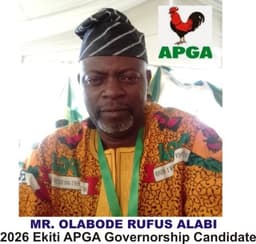
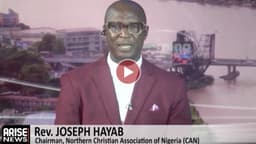
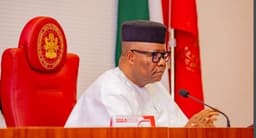
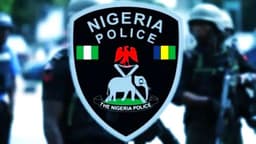



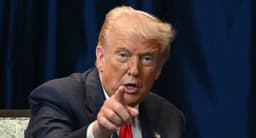
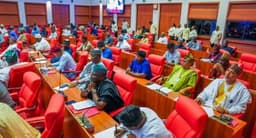





NEWS EXPRESS is Nigeria’s leading online newspaper. Published by Africa’s international award-winning journalist, Mr. Isaac Umunna, NEWS EXPRESS is Nigeria’s first truly professional online daily newspaper. It is published from Lagos, Nigeria’s economic and media hub, and has a provision for occasional special print editions. Thanks to our vast network of sources and dedicated team of professional journalists and contributors spread across Nigeria and overseas, NEWS EXPRESS has become synonymous with newsbreaks and exclusive stories from around the world.